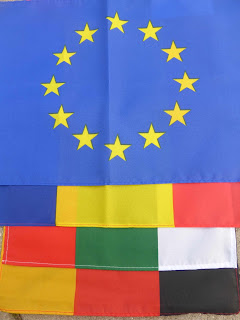The General
secondary school “Vasil Levski” is a school
with 132 year old history. It is the follower of the first school in Dolni
Chiflik, which is founded 1884/1885. The school which has well kept the
traditions of the past and which are beeing developed untill today and the
present future
School “Vasil Levski” is the biggest school in Dolni
Chiflik. Here 756 students are studying from 6 to 19 year old and beeing
separated on 33 classes. The school has very well developed material technician
base from 3 separated rooms with one of which has its own interactive board. We
have sports hall where we play volleyball, handball, football and basketball.
The school has restaurant for students only and school library.
The pedagogic collective is consisted by 63 members led by
school director Mrs. Maria Hristova and three deputy directors. In help of the
school is help school board which unites the parent society.
The board of school, teachers, students and parents are
working together for developing different projects with purpose to make the
school attractive for young people. There are made many different class and out
class forms which purpose is to meet the interests of students and their abilities.
To the school is functioning child dance folklore staff called Chiflikchiiche.
School “Vasil
Levski” in Dolni
Chliflik works on international projects : project „With care for every student“, project „Support for even access in
personal developing“, project : „Warm lunch“ – with the support of Bulgarian Red Cross, project : „Becoming a multicultural European”„ on program Erazum + and many e
Twinning projects. The school is awarded with eTwining european sign for
quality work by the project „Be
multucultural!“, with certificate for
high achievements on project „2014“ , with many national eTwining labels for
quality.


